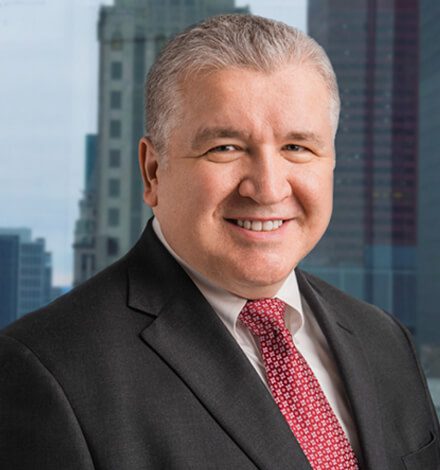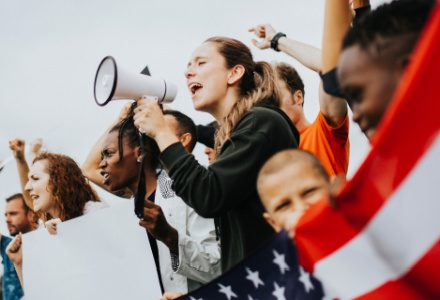Court Finds Part Of Florida’s “Stop W.O.K.E. Act” Unconstitutional
In 2022, Florida’s Stop W.O.K.E. Act (“Act”) went into effect. The Act banned (a) “certain mandatory workplace trainings” in private companies, and (b) “public-school instruction that aims to ‘indoctrinate or persuade students to a particular point of view inconsistent’ with certain principles.” In Honeyfund.com Inc. v. Governor, State of Florida, the Eleventh Circuit federal court of appeals recently held that the part of the Act targeting what is commonly known as DEI training within private companies was unconstitutional under the First Amendment. The appellate court did not address the portion of the law directed at public schools.
Diversity, Equity and Inclusion (“DEI”) is a relatively new term commonly associated with a number of beliefs, such as, (a) America is a systemically racist and misogynistic country, (b) only certain racial groups can be racist, (c) disparities in outcomes are caused by systemic discrimination, and (d) the remedy for past discrimination is current discrimination. The embrace of DEI inspired training by many employers has become a highly controversial topic.
Companies had mandatory anti-discrimination training programs long before DEI began its rapid growth as an intellectual and political movement. These pre-DEI training programs responded to the enactment of anti-discrimination laws by federal, state and local governments. These laws allow government enforcement actions against companies that discriminate against current employees or base hiring decision on the basis, among other things, of race, color and sex. Further, many of these laws give private individuals the right to sue companies that engage in prohibited acts of discrimination.
In response to these laws, many companies implemented mandatory training programs for their employees describing the types of conduct prohibited by these laws. These training programs did not generate significant controversy. These programs were largely seen for what they were: efforts by companies to reduce their exposure to civil rights lawsuits brought by employees, the federal government and state and local governments. These training programs were not generally seen as efforts by companies to push an ideological agenda.
The rise of DEI has led many companies to change their anti-discrimination programs. Traditional anti-discrimination training was based on the various anti-discrimination laws and the case law interpreting these laws. DEI training goes well beyond traditional anti-discrimination training. What is now commonly referred to as DEI training is driven more by ideology than an effort to reduce liability. DEI programs seek to change the opinions and behavior of employees based on theories of discrimination that are not widely accepted and are viewed by many as being, themselves, discriminatory and racist. A large current in modern DEI training is the belief that (a) racism is “systemic” and the primary way to address this “systemic” racism is with active discrimination against whites and others viewed as benefitting from various forms of privilege, (b) certain racial groups or white people are inherently racist, (c) various racial groups and people of color cannot be racist under the new definitions of racism, (d) many types of behavior that were once considered important to an efficient workforce are now viewed as racist, and (e) acknowledging racial guilt for the actions of others and for alleged unconscious bias is essential and mandatory.
Not surprisingly, DEI training is highly controversial. Certain aspects of DEI training foster and solidify racial stereotyping, can harm interpersonal relations within companies and can breed resentment and anger between employees. Indeed, some DEI training appears to call for conduct that is, itself, unlawful under federal, state and local anti-discrimination laws.
The proliferation of DEI training led to the Florida legislature’s passing the Stop W.O.K.E. Act. Florida could have addressed the issue of DEI training in a number of different ways. It could, for example, have changed the definition of a hostile work environment to address a company’s accusing its white employees of being racist for simply being white. It could have ramped up civil and criminal civil rights investigations and prosecutions of companies that discriminate against any employee on the basis of the employee’s skin color. Florida chose a different path that put it in opposition to the free speech protections provided by the First Amendment.
Florida chose to directly target the messages contained in mandatory DEI employee training programs. The Act broadly defines “mandatory training” and then identifies a broad list of messages that an employer cannot endorse during such mandatory training:
“[m]embers of one race, color, sex, or national origin are morally superior to members of another race, color, sex, or national origin,”
“[a]n individual, by virtue of his or her race, color, sex, or national origin, is inherently racist, sexist, or oppressive, whether consciously or unconsciously,”
“[a]n individual by virtue of his or her race, color, sex, or national origin, bears responsibility for, or should be discriminated against or receive adverse treatment because of actions committed in the past by other members of the same race, color, sex, or national origin,”
“[a]n individual, by virtue of his or her race, color, sex, or national origin, should be discriminated against or receive adverse treatment to achieve diversity, equity, or inclusion.”
“[s]uch virtues as merit, excellence, hard work, fairness, neutrality, objectivity, and racial colorblindness are racist or sexist . . .”
The Eleventh Circuit held that the Act targeted certain viewpoints and was unconstitutional under the First Amendment. The Act makes it unlawful, for example, for an employer to conduct a training program that endorses the view that one racial group is superior to another racial group or groups. Many would view such statements as facially racist and inconsistent with the general prohibitions on various types of discrimination. The civil rights laws are based on a rejection of the belief that one racial group is morally superior to another racial group, and prohibit basing employment decisions on a person’s race. The Act, however, does not focus on the use of such DEI concepts when making employment decisions such as hiring new employees, promotions, compensation or other conditions of employment. Instead, the Act focuses on what is said in mandatory training programs. The view that some racial groups are morally superior to other racial groups is abhorrent to most Americans, the First Amendment, however, protects the expression of such viewpoints by the left or the right. By picking viewpoints that an employer cannot express to its employees, the Act constitutes viewpoint censorship that is not permissible under the First Amendment.
The Eleventh Circuit’s decision does not represent a novel interpretation of the First Amendment. Prohibiting viewpoint censorship by state governments is a well-established First Amendment principle. Indeed, freedom of speech cannot plausibly exist when a state or the federal government can decide which viewpoints are allowed and which viewpoints are prohibited.
Florida did not apparently try to defend the Act as a lawful viewpoint restraint. Florida argued instead that the Act was directed at conduct by private employers (mandatory training) and did not actually prohibit speech or any viewpoints. The Eleventh Circuit rejected this argument.
The distinction between speech and conduct is not always clear. Many types of speech are fundamentally connected to conduct. For example, people protesting a US foreign policy decision might burn an American flag. In this example, the act of burning the flag is a form of speech that conveys a certain viewpoint or message. A law that prohibits burning an American flag to make a political statement represents a form of censorship. This does not mean that a state cannot pass a law prohibiting the setting of fires on a sidewalk. A law, for example, that prohibits setting fires on public sidewalks is not a viewpoint restraint simply because the law would also prohibit the burning of flags on a sidewalk. A law that bans burning an American flag is focused on prohibiting the message conveyed by burning an American flag. The application of a law against burning things on a public sidewalk does not depend on the message conveyed by the prohibited action.
The Stop W.O.K.E. Act, in one sense, did prohibit a type of conduct: certain mandatory training meetings. The Act, however, did not ban all mandatory training by employers. The application of the Act turned on the message communicated and endorsed in a mandatory training meeting. For example, a mandatory training meeting that endorsed the rejection of all color or racially-based preferences was legal under the Act. A mandatory training meeting endorsing the belief that certain racial groups are inherently racist was unlawful under the Act. The Eleventh Circuit stated that the “fact that only mandatory meetings that convey a particular message and viewpoint are prohibited makes quick work of Florida’s conduct-not-speech defense.”
Florida argued that the Act was intended to prevent discrimination in the workplace. Instead of directly addressing actual discrimination, however, Florida chose to censor speech. While combatting racial or sexual discrimination is a laudable and important objective, directly targeting speech is not a constitutionally permissible way of pursuing this goal. The First Amendment’s protection of freedom of speech evaporates if states or the federal government can censor viewpoints they dislike. Given the different political leanings of the 50 states that make up the United States, the First Amendment would lose all credibility as a meaningful right if each state could suppress the viewpoints it finds objectionable.
At The Law Offices of George M. Sanders, P.C., we understand the paramount importance of safeguarding your freedom of speech—a cornerstone of our democracy and a fundamental human right. Our commitment to defending your ability to express your beliefs and opinions without fear of repercussion is unwavering. We not only possess the knowledge and experience necessary to navigate the intricate landscape of First Amendment law, but we also bring a level of compassion and understanding to each case that is unmatched. If you believe your freedom of speech is being violated or threatened, contact The Law Offices of George M. Sanders, P.C.
Previous Post
The Second Amendment And Billy Clubs
It is not surprising that most people think the Second Amendment only protects handguns and rifles. The Supreme Court’s three major Second Amendment decisions...
NEXT Post
Florida’s “Stop W.O.K.E. Act” is Unconstitutional; Racial Discrimination Is Also Illegal
In 2022, Florida’s Stop W.O.K.E. Act (“Act”) went into effect. The Act banned (a) “certain mandatory workplace trainings” in private companies, and (b) “public-school...







